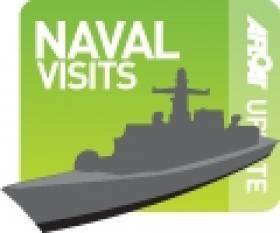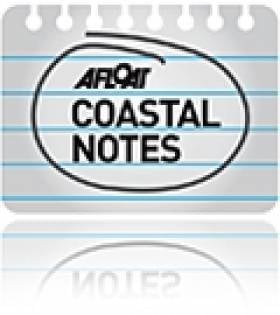Displaying items by tag: Abercorn Basin Belfast
Merseyside based UK Patrol Boat Berths in Dublin Marina
#NAVY VISIT – The Royal Navy's coastal training patrol boat HMS Charger (P 242) spent last night in Dublin Port having sailed from Liverpool's East Brunswick Dock. The vessel is based at the Commanding Officer of the Liverpool University Royal Naval Unit RN Headquarters on Merseyside, writes Jehan Ashmore.
The small boat measuring 20m in length and a beam of 6m remains this evening moored alongside the Poolbeg Yacht Boat Club Marina. The 100-berth facility faces Alexandra Basin where P&O Cruises Arcadia docked today.
HMS Charger is an Archer P2000 class patrol boat built by Waterfcraft Ltd of Shoreham. She provides practical navigation and seamanship training at sea where a crew recruitment unit takes place annually in early October from the universities in Liverpool and also from Lancaster University.
Last week HMS Charger called to Belfast Lough which included berthing in the city's Abercorn Marina basin next to the Titanic Quarter. Also visiting the basin this week was the newbuild WFSV Gardian 10 completed by Arklow Marine Services which was on a promotional delivery voyage to Great Yarmouth.
#BELFAST BASIN CLOSURE – The Belfast Harbour website has a notice informing the temporary closure of the Abercorn Basin over this May Bank Holiday weekend.
The closure times of the basin are from 12.00pm on Sunday 6th May as this is to accommodate the 'Lough to Lagan Flotilla' event to be staged in the area. The facility will re-open as normal at 12.00pm on Monday 7th May.
Incidentally moored nearby on the far side of the Lagan opposite to the entrance of the Abercorn Basin, lies the 87m general dry-cargo ship Union Moon. As previously reported the Cook Island flagged vessel was in a collision with a ferry in Belfast Lough in early March.































































